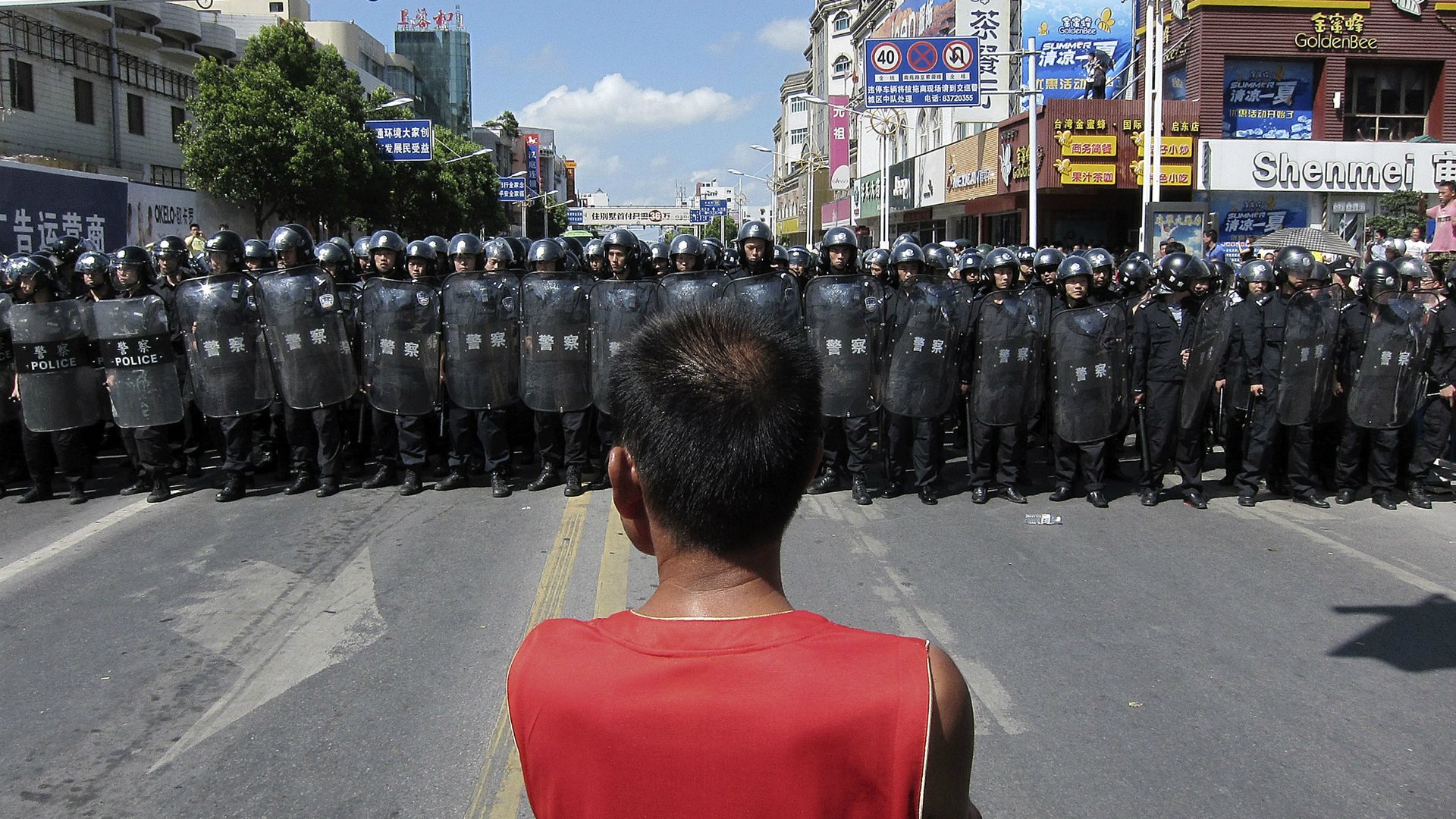Protesting is taboo in China, even if it’s against child abuse
Ye Haiyan, the feminist activist known as “Hooligan Sparrow,” has made waves before, but nothing that has caught fire on Chinese social media like her recent campaign. After a school principal and government official were caught with six underage pupils in a hotel room earlier this month, she posted a picture of herself on Sina Weibo holding a sign that said: ““School principal: Get a room with me [if you need to]. Let go of the students!”


Ye Haiyan, the feminist activist known as “Hooligan Sparrow,” has made waves before, but nothing that has caught fire on Chinese social media like her recent campaign. After a school principal and government official were caught with six underage pupils in a hotel room earlier this month, she posted a picture of herself on Sina Weibo holding a sign that said: ““School principal: Get a room with me [if you need to]. Let go of the students!”
The meme quickly took off, with dozens of Chinese internet users posting similar pictures, including artist Ai Wei Wei and (because some Internet memes are universal) an adorable dog. In total, eight separate cases of kids being sexually molested by either teachers or government officials have been exposed in the past 20 days, according to the Offbeat China blog.
In China, acts of unauthorized collective protest are rarely allowed to continue. On Thursday Ye was beaten up in front of her 13-year-old daughter and then detained by public security officials for assaulting her attackers.
Ye appears to be uncowed by the assault by what she calls the “unofficial mafia.” “I’m not a hooligan and I have done nothing wrong. Even if they want to kill me or hack me to pieces, I will not retreat.” she wrote on her blog, according to a translation by Shanghaist.
Child sex abuse is the latest in a string of high-profile issues that has generated public activism, only to be quashed by a crackdown on the protestors. Often the activists are protesting the very same issues that the government is putting at the top of its own agenda.
- The parents of around 2,000 children who died in the 2008 Sichuan earthquake—in part due to shoddy school construction—demanded compensation in the aftermath from local government offices. They were dragged away by police.
- Activist Liu Ping, a campaigner for workers’ rights, women’s rights and transparency among officials, disappeared in April to face subversion charges. She hasn’t been seen since.
- Thirteen people were arrested for “spreading rumors” earlier this month about the rape and death of a 22-year-old woman by security guards at a mall. Police claim she committed suicide.
- Six anti-corruption activists were arrested in April, even as the government touted its goal of tackling corruption in all corners of Chinese society.
- Environmental activist Wu Lihong was denied permission to leave China to accept an international award for his work.
- Gay rights organizer Xiang Yuhan, 19, was arrested in his hotel room earlier this month and put on detention for 12 days. He led an unauthorized rally in the southern city of Changsha to mark an international day against homophobia.
Reform is a central part of Xi Jinping’s new government, and he purports to share an agenda with many of the activists calling for change, on the environment and corruption in particular. But nearly 24 years after the 1989 Tiananmen Square protests, maintaining social order is still the paramount goal of China’s leaders. And that means anyone organizing collective action—even against an unambiguous evil like the sexual exploitation of students by their principal—will find themselves on the wrong side of the state.